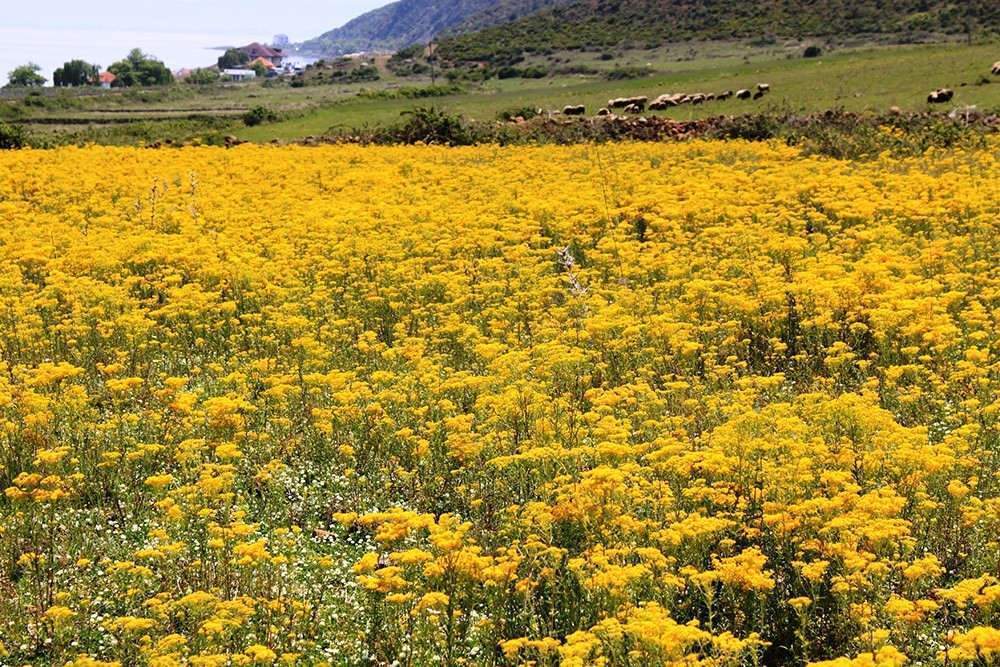On Monday, December 9 at 2pm, at the premises of the Ecole Nationale Supérieure des Industries Chimiques – Ensic (Amphi A), the University of Lorraine and the company Econick invited the elected representatives to present their innovative and ecological metallurgical sector that has emerged in Lorraine.
Agromine is the implementation of extraction (phytoextraction) and recovery of metals contained in a wide range of secondary resources (soils, effluents, sediments, industrial by-products). Supported and coordinated by the University of Lorraine for a total budget of €2,771,543, the European Life-Agromine project has given rise to new professions embodied by the Start-Up Econick and Microhumus.
Agromine, a response to the creation of value and the safety of polluted sites and soils
Life-Agromine aims to highlight, from demonstration plots, the usefulness of Agromine* in cleaning up soil, producing nickel or energy from biomass, providing income for farmers in regions with low fertility soils by rehabilitating them and demonstrating its economic viability. This project has made it possible to create a new commercial sector aimed at recovering bio-sourced metals such as nickel using so-called hyperaccumulative plants.
Many actors involved in Lorraine and around the world
The project brings together a consortium of European research teams and SMEs (see all partners) including, in Lorraine:
- The University of Lorraine represented through its two laboratories based in Nancy:
The Soil and Environment Laboratory – LSE (UL / INRA) which manages the project under the responsibility of Guillaume Echevarria.
The Reactions and Process Engineering Laboratory – LRGP (UL / CNRS). - The Econick company (from the LSE and the LRGP). Based in Nancy, this Start-Up is a stakeholder in the Life-Agromine project as well as in the “Des hommes et des arbres” project, which won the 2019 call for projects “Territoires d’innovation”. It is in charge of the production and valorization of “bio-sourced” ore. Econick is a plant biotechnology company producing eco-responsible metals from plants. It is addressed to any customer wishing to engage in an ethical approach to the supply of metals.
- The Microhumus company (from the LSE). Based in Jarville, this Start-Up is supporting the Life-agromine project. It is a consulting firm specialising in soil and the environment, offering its expertise in particular in the phytoremediation of polluted sites and soils and the rehabilitation of degraded soils. Microhumus is the French leader in the management of polluted sites and soils in phytoremediation.
Genesis of the agromine chain
At Ensaia, for several years now, lecturers and researchers from the Soil and Environment Laboratory have been interested in plants of a special genus. They are hyperaccumulative plants capable of extracting metals from the soil and storing them in large quantities in their aerial parts without showing any toxicity effects. Within this botanical “family”, there is a great diversity, almost 1,000 species known to date in different parts of the world. These researchers were interested in a particular species: the Alyssum murale, a plant from Albania (and the Balkans in general) that hyperaccumulates nickel. This flowering plant of the Brassicaceae family is suitable not only for soils with a high nickel content, but can also accumulate up to 100 kg of nickel/ha in its leaves.
In the Balkans, there are soils a hundred times richer in nickel than normal soils. Thus, this research team succeeded in joining forces with the LRGP research team (University of Lorraine / CNRS) to develop a process for recovering the metals contained in these plants through the cultivation of these soils. The method consists of harvesting the biomass, incinerating it and treating the ash resulting from this combustion with hydrometallurgy. Nickel salts are also obtained, an element that could be called “bio-minerai”. This device was patented in 2012. Its performance is sufficient for an industrial operation to be considered in the medium term under competitive economic conditions.
Art object
An ash processing pilot has been defined to be able to produce batches in the order of one kilogram of final product. With a volume of 60 litres, it allows the different reactions and filtration to be carried out in a single operation. Received in 2019, this pilot is currently being commissioned. At a cost of around 100,000 euros, 75% of it was financed by state-regional funds (GisfiTech project) and 25% by the European Life-Agromine project.
Luxury decoration is one of the sectors interested in ecological nickel. The DAUM crystal works uses nearly 100 kilos of it per year for its creations. Mixed with other oxides and crystal ingredients, organic nickel produces a grey colour with a bluish shade. A commercial argument that makes it possible to present a luxury object, a crystal tinted with “natural nickel”, ecological which became a reality in 2019, DAUM has indeed put on sale the first bio-sourced nickel-based art object, a turtle-lute.
Agromine could be used for the recovery of other metals such as aluminium, cadmium, cobalt, zinc, lithium…. these metals are nowadays necessary for digital technologies and electric vehicles (batteries). This is the purpose of Econick’s contribution to the “People and Trees” project led by the Greater Nancy Metropolitan Area. The potential for the agromine sector is significant, there are soils naturally rich in nickel, i.e. ultramafic soils that represent 3% of the world’s soils and are unattractive to agriculture in terms of fertility and yield. This ecological process makes it possible to recover metals that cannot be extracted in a conventional way without damaging the natural environment. But agromine can also give new life to soils devastated by mining and a solution for depollution/recycling of waste for industrialists.
PROGRAMME
14h00 – Visit of Econick’s premises and the hydrometallurgical pilot in the premises of the Reactions and Process Engineering Laboratory (LRGP)
14h30 – Presentation of the Life-Agromine project
15h00 – Presentation of the Agromine activity at Microhumus
15h10 – Presentation of Econick
15h30 – Questions / answers
15h45 – Cocktail
More
https://life-agromine.com
https://www.econick.fr
https://www.microhumus.eu
http://lrgp-nancy.cnrs.frhttp://lse.univ-lorraine.fr

